Cass Timberlane

Brief Synopsis
Cast & Crew
George Sidney
Spencer Tracy
Lana Turner
Zachary Scott
Tom Drake
Mary Astor
Film Details
Technical Specs

Synopsis
Judge Cass Timberlane, a kind-hearted, middle-aged bachelor, tries case after case in his Grand Republic, Minnesota court, but it is not until he meets Virginia "Jinny" Marshland, a witness, that he takes a personal interest in anyone in his courtroom. Following a tiresome divorce case, Cass finds a notebook that Jinny left in the courtroom. Intrigued by the much younger Jinny and the sketches in her notebook, Cass ventures to the poorer neighborhood of the city where she lives, and finds her playing baseball. Cass offers to umpire her game, after which he takes her out to dinner. The two eventually fall in love, much to the displeasure of Cass's snobbish society friends. With the exception of attorney Bradd Criley, an old friend of Cass, the judge's country club friends believe that he is wrong to cross social lines. Ignoring the prejudices of his peers, Cass marries Jinny and the two go on a happy honeymoon vacation. Time passes, and Cass soon realizes that Jinny is unhappy living in Grand Republic and is looking for excitement. Jinny eventually becomes pregnant, but when the baby is stillborn, her discontent grows stronger. Cass tries to cheer up his wife by teaching her how to fly an airplane, spending more time with her and encouraging her attempt to become an amateur stage actress, but all his efforts end in failure. Jinny later ruins her prospects of starring in a Grand Republic stage play when she gives an all too realistic performance while rehearsing a love scene with her co-star, Bradd. Because of his part in the scandal, Bradd is transferred to his company's office in New York City. Jinny sinks further into depression until Cass suggests they take a trip to New York. While Cass visits an old friend of his, Jinny goes sightseeing with Bradd. Jinny wishes to stay in New York, and when Cass tells her that he has rejected a job offer in the city, she throws her first tantrum. Cass is angered by the outburst, and tells Jinny that she is welcome to stay in New York with Bradd. Bradd, however, is content living the single life and has no intention of being a companion to Jinny. When Bradd tells Jinny that he does not want to marry her, she jumps out of the speeding car in which they are driving and is seriously injured. After Lillian Drover, the kind, but timid and unhappy, wife of Jinny's Grand Republic doctor, tells Cass about Jinny's injuries and begs him to go to her, Cass rushes back to New York. He then brings Jinny back to Grand Republic and nurses her back to health. After Jinny makes a full recovery, she tells Cass that he will always be the man for her.

Director
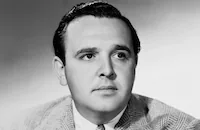
George Sidney
Cast

Spencer Tracy
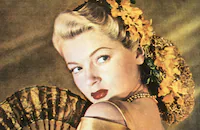
Lana Turner

Zachary Scott

Tom Drake

Mary Astor

Albert Dekker

Margaret Lindsay

Rose Hobart

John Litel

Mona Barrie

Josephine Hutchinson

Selena Royle
Frank Wilcox
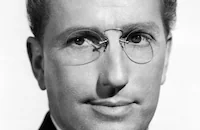
Richard Gaines

John Alexander
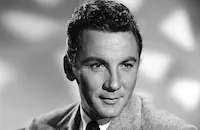
Cameron Mitchell

Howard Freeman
Jessie Grayson

Griff Barnett
Pat Clark Alice Wargate

Walter Pidgeon
Willis Claire
Winona Walthall
Guy Beach
Cliff Clark
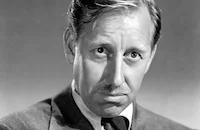
Frank Ferguson
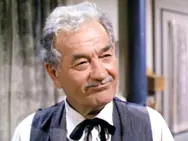
Milburn Stone
Almira Sessions
Jack Rice
Mimi Doyle
Bill Conselman
Sam Flint
Sara Berner
Frank Bingman

Greta Granstedt
Robert Williams
William Tannen
Ruth Lee
Tim Ryan
John Walsh
Nanette Vallon
Jean Andren
Lester Dorr

Bess Flowers
William Trenk

Roy Gordon
Ed Oliver

Emmett Vogan
Gordon Richards
Betty Blythe
Eddie Dunn
Selmer Jackson
Charles L. Marsh
Bobby Johnson
Buz Buckley
Joe Marievsky
Regina Bookasta
Charlene Arnold
Dee Turnell
John Albright
Mary Mcleod
Hilda Plowright
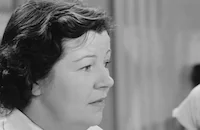
Margaret Bert
Ken Christy
Robert Riordan
Mickey Martin
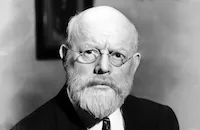
Howard Mitchell
Mike Pat Donovan
Manuel Paris
Albert Pollet
Betty Jane Howarth
Don Avalier
Arno Frey
William Neff
Mitchell Kowall
Crew
Constantin Bakaleinikoff
Daniel B. Cathcart
Jack Dawn
John Dunning
Cedric Gibbons
A. Arnold Gillespie
Sydney Guilaroff
Arthur Hornblow Jr.
Irene
Sonya Levien
Paul Mantz
Warren Newcombe
Richard Pefferle
Robert Planck
George Rhein
Douglas Shearer
Donald Ogden Stewart
Donald Ogden Stewart
Roy Webb
Edwin B. Willis
Edward Woehler

Videos
Movie Clip



Trailer
Film Details
Technical Specs

Articles
Cass Timberlane
Cass Timberlane was part of Tracy's comeback to MGM after a year off to do a Broadway show, Robert Anderson's The Rugged Path. When the play flopped, Tracy stayed in New York to enjoy the city's cultural life and undergo treatment for the drinking problem that had returned after the play's closing. After a year off the screen, Tracy had trouble finding a suitable vehicle. The Sea of Grass (1947), a western drama co-starring Katharine Hepburn, had not done well. Sinclair Lewis' novel Cass Timberlane, with its tale of a widowed small-town judge who sets tongues wagging when he marries a beautiful young woman, seemed to have been written for him. But it took three writers to adapt the tale to the screen, partly because of changes made for the Hollywood Production Code. Nor was Tracy happy with the studio's choice of director. He had hoped to get either George Cukor or Vincente Minnelli, but instead they assigned the film to George Sidney, a thorough professional whose previous work had been mostly confined to light musicals.
At first, the biggest problem with the film was Turner. After Broadway veteran Donald Ogden Stewart finally got the script in order, she demanded changes. Early in shooting, Stewart claimed she would show up not even knowing her lines or what was happening in the scene to be filmed.
For Turner, the filming of Cass Timberlane was a difficult time. For one thing, she had only just finished the period adventure Green Dolphin Street (1947) and was splitting her days between retakes on that film and work on the other. The changes in makeup, hair and costuming were exhausting, and at times she brought the British dialect she'd developed for Green Dolphin Street to her very American character in Cass Timberlane, prompting Tracy to quip, "My, my, aren't we British this morning?"
She was going through personal problems as well, involved in a tempestuous affair with Tyrone Power. Since Power was still married to French actress Anabella, she finally had to call off the relationship for fear of destroying both their careers. And when she found herself pregnant, she decided abortion was the only answer.
Through all this turmoil, however, Turner's career continued to rise. MGM was wisely trying her out in a series of powerful dramatic roles, leading film critics to praise her acting in Cass Timberlane, something they'd rarely done about her work before. She must have mended her ways on the set as well, because by the time shooting ended Tracy gave her the strongest compliment he could: "This is a good actress."
Director: George Sidney
Producer: Arthur Hornblow, Jr.
Screenplay: Donald Ogden Stewart; Adaptation by Stewart and Sonya Levien
From the novel by Sinclair Lewis
Cinematography: Robert Planck
Art Direction: Cedirc Gibbons, Daniel Cathcart
Music: Constantine Bakaleinikoff
Cast: Spencer Tracy (Cass Timberlane), Lana Turner (Virginia Marshland), Zachary Scott (Brad Criley), Tom Drake (Jamie Wargate), Mary Astor (Queenie Havock), Albert Dekker (Boone Havock), Walter Pidgeon (Man at Cocktail Party).
BW-119m. Close captioning.
by Frank Miller

Cass Timberlane
Quotes
Trivia
Notes
The onscreen title reads: Sinclair Lewis' Cass Timberlane. The Sinclair Lewis novel on which this film is based appeared serially in Hearst's International-Cosmopolitan magazine from May-October 1948. An April 1945 Hollywood Reporter news item reported that M-G-M paid $150,000 for the film rights to Lewis' novel. According to information in M-G-M story files at the USC Cinema-Television Library, novelist John O'Hara worked on a treatment and character studies for the film from August 20, 1945 through January 15, 1946. M-G-M story files also reveal that Sidney Kingsley worked on drafts of the screenplay in April and May 1946, but the extent of O'Hara's and Kingsley's contribution to the completed film has not been determined.
According to an August 1945 Hollywood Reporter news item, M-G-M was considering at the time either Spencer Tracy or Walter Pidgeon for the title role. Pidgeon appeared in the film in a brief cameo. A December 1945 Hollywood Reporter news item notes that M-G-M asked David O. Selznick for the loan-out of actress Jennifer Jones for the female lead. Late 1945 Hollywood Reporter news items also note the following: In Oct, while Tracy was set for the title role, M-G-M was negotiating with Vivien Leigh for the female lead. In Nov, Virginia Grey was screen-tested for a "key role," and it was announced that the film would be shot in Minnesota. The film was ultimately shot in and around Los Angeles. In January 1947, four months before the start of production, a Hollywood Reporter news item reported that producer Arthur Hornblow, Jr. and director George Sidney were "stymied" in their search for an actress to play the female lead and had begun looking at footage of actresses who had tested during the year. According to a May 1947 Hollywood Reporter news item, shooting on the film was suspeded for three days due to illness.
The world premiere of the film was held as a charity event for the John Tracy Clinic for deaf children, which was founded in 1942 by Spencer Tracy's wife Louise and named for their own deaf child. In April 1945, according to Hollywood Reporter, Fay Hendry, the mother of Sonya Hendry, a young girl who appeared in the film, was awarded nearly $30,000 for injuries she sustained when the girl was struck by a falling reflector at the site of location filming.















